How chronic stress physically rewires your brain
 Stress is a natural part of life, but when does it shift from a temporary challenge to a long-term burden on our bodies, specifically as it concerns brain health? The key differences between stress and chronic stress lie in their duration, intensity, and overall impact on well-being.
Stress is a natural part of life, but when does it shift from a temporary challenge to a long-term burden on our bodies, specifically as it concerns brain health? The key differences between stress and chronic stress lie in their duration, intensity, and overall impact on well-being.
Bashir named First Holder of Burton Multiple Sclerosis Endowed Research Professorship in Neurology
 Khurram Bashir, M.D., Distinguished Professor, director of the Division of Neuroimmunology and Multiple Sclerosis, and vice chair for education, has been named the First Holder of the Burton Multiple Sclerosis Endowed Research Professorship in Neurology.
Khurram Bashir, M.D., Distinguished Professor, director of the Division of Neuroimmunology and Multiple Sclerosis, and vice chair for education, has been named the First Holder of the Burton Multiple Sclerosis Endowed Research Professorship in Neurology.
Resident spotlight: Erum Khan, M.D. PGY1
 Erum Khan, M.D., PGY1, joined the UAB Department of Neurology in June 2024. A native of Bharuch, Gujarat, India, Khan completed her medical degree at B.J. Medical College and Civil Hospital in Ahmedabad, India.
Erum Khan, M.D., PGY1, joined the UAB Department of Neurology in June 2024. A native of Bharuch, Gujarat, India, Khan completed her medical degree at B.J. Medical College and Civil Hospital in Ahmedabad, India.
Get to know Dr. Khan better with four quick questions!
Read moreNew Faculty Feature: Rebecca Brown, M.D., Ph.D.
 The UAB Department of Neurology welcomed Rebecca Brown, M.D., Ph.D., as an associate professor in November 2024.
The UAB Department of Neurology welcomed Rebecca Brown, M.D., Ph.D., as an associate professor in November 2024.
Resident spotlight: Claire Goode, D.O., PGY1
 Claire Goode, D.O., PGY1, joined the UAB Department of Neurology in June 2024. A native of Birmingham, Goode completed her undergraduate education at Auburn University with a degree in biomedical sciences and her medical degree at Edward Via College of Osteopathic Medicine in Auburn, Alabama.
Claire Goode, D.O., PGY1, joined the UAB Department of Neurology in June 2024. A native of Birmingham, Goode completed her undergraduate education at Auburn University with a degree in biomedical sciences and her medical degree at Edward Via College of Osteopathic Medicine in Auburn, Alabama.
Get to know Dr. Goode better with three quick questions!
Read moreDavis receives K23 grant to study sex-specific pharmacogenomic and metabolomic factors related to adverse effects of blood thinners
 Brittney Davis, PharmD., assistant professor in the UAB Department of Neurology, recently received a five-year, K23 grant from the National Heart, Lung, and Blood Institute of the NIH to study sex-specific pharmacogenomic and metabolomic factors related to adverse effects of anticoagulants, commonly known as blood thinners. The award amount is $818,838 starting in September 2024.
Brittney Davis, PharmD., assistant professor in the UAB Department of Neurology, recently received a five-year, K23 grant from the National Heart, Lung, and Blood Institute of the NIH to study sex-specific pharmacogenomic and metabolomic factors related to adverse effects of anticoagulants, commonly known as blood thinners. The award amount is $818,838 starting in September 2024.
New faculty feature: Muhammad Bilal Tariq, M.D.
 The UAB Department of Neurology welcomed Muhammad Bilal Tariq, M.D., to the faculty as an assistant professor in July 2024.
The UAB Department of Neurology welcomed Muhammad Bilal Tariq, M.D., to the faculty as an assistant professor in July 2024.
Department of Neurology approved as APPCN match site for Neuropsychology Fellow
 The UAB Department of Neurology was recently approved by the Association of Postdoctoral Programs for Clinical Neuropsychology (APPCN) as a match site for a neuropsychology fellow. The approval marks the restarting of the neuropsychology fellowship in the department.
The UAB Department of Neurology was recently approved by the Association of Postdoctoral Programs for Clinical Neuropsychology (APPCN) as a match site for a neuropsychology fellow. The approval marks the restarting of the neuropsychology fellowship in the department.
New faculty feature: Joao Pereira, Ph.D.
 The UAB Department of Neurology welcomed Joao Pereira, Ph.D., to the faculty as an assistant professor in July 2024.
The UAB Department of Neurology welcomed Joao Pereira, Ph.D., to the faculty as an assistant professor in July 2024.
Epilepsy Genomics Clinic at UAB reimagines how to treat adults with epilepsy
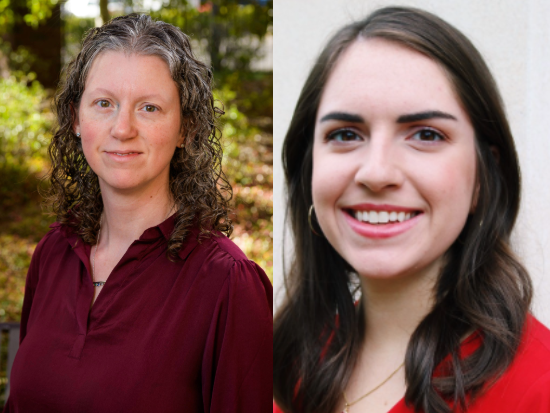 November is National Epilepsy Awareness Month, and the Epilepsy Genomics Clinic at UAB is reimagining how to treat epilepsy in adults with an innovative approach. Ashley Thomas, M.D., director of the clinic and associate professor in the Department of Neurology, and Elizabeth Rothrock, M.S., LCGC, genetic counselor of the clinic and in the Department of Genetics, started the clinic roughly five years ago, and it has expanded since.
November is National Epilepsy Awareness Month, and the Epilepsy Genomics Clinic at UAB is reimagining how to treat epilepsy in adults with an innovative approach. Ashley Thomas, M.D., director of the clinic and associate professor in the Department of Neurology, and Elizabeth Rothrock, M.S., LCGC, genetic counselor of the clinic and in the Department of Genetics, started the clinic roughly five years ago, and it has expanded since.
A pioneer in neuromuscular disease: UAB’s Oh reflects on nearly half-century tenure in the field of neurology
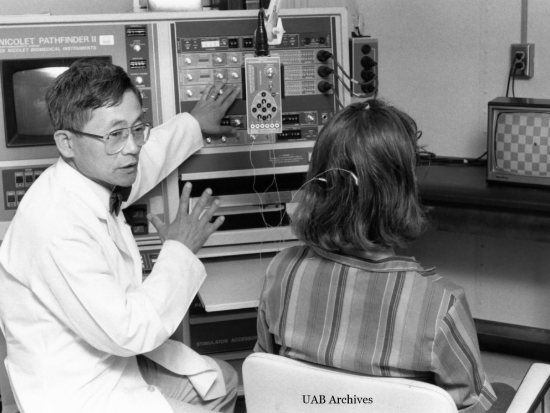 When Shin J. Oh, M.D., started at UAB in 1970, Richard Nixon was president, the Apollo 13 mission made its safe return home, and the price of gas averaged $0.36.
When Shin J. Oh, M.D., started at UAB in 1970, Richard Nixon was president, the Apollo 13 mission made its safe return home, and the price of gas averaged $0.36.
Also in 1970, Oh recalls that parking at UAB was a lot different.
“UAB was a small medical community,” Oh said. “At Jefferson Tower by the main hospital, all the faculty were able to park their car in one area. We had about 40 cars, and you could meet all the faculty of every specialty there. Now it’s amazing the size of UAB.”
A native of Haeju, Korea, Oh’s career in the field of neurology spanned 43 years before he retired in 2014: one of the longest neurology tenures in American medicine. A distinguished professor emeritus in the Department of Neurology who served four department chairs, Oh is a pioneer in neuromuscular disease – a subspecialty that he largely helped establish in the region.
Read moreAguilar Calvo, Scarduzio receive research grants from American Parkinson Disease Association
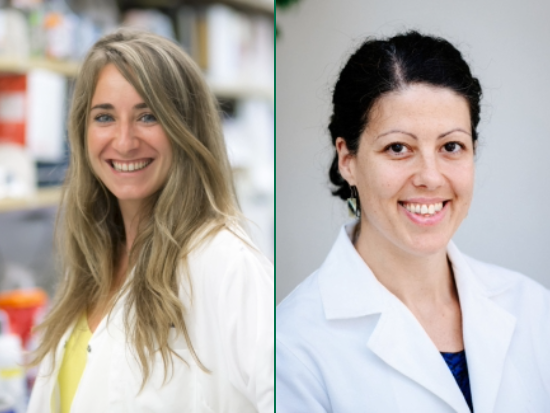 Assistant professors in the Department of Neurology, Patricia Aguilar Calvo, Ph.D., and Mariangela Scarduzio, Ph.D., have been awarded research grants from the American Parkinson Disease Association (APDA).
Assistant professors in the Department of Neurology, Patricia Aguilar Calvo, Ph.D., and Mariangela Scarduzio, Ph.D., have been awarded research grants from the American Parkinson Disease Association (APDA).
The art of memory: Sharma is inaugural artist in residence for UAB Brain Aging and Memory Hub
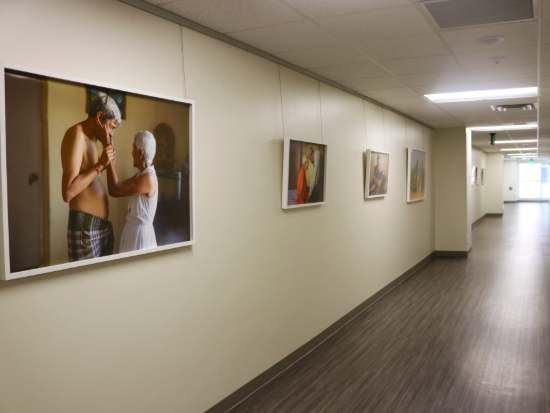 Photos lining a long corridor adjacent to the new Brain Aging and Memory Hub at UAB at first glance show a couple in love, a smiling family, and colorful scenery. Beyond the surface, however, exists a deeper implication – one not only between husband and wife, but between patient and caregiver.
Photos lining a long corridor adjacent to the new Brain Aging and Memory Hub at UAB at first glance show a couple in love, a smiling family, and colorful scenery. Beyond the surface, however, exists a deeper implication – one not only between husband and wife, but between patient and caregiver.
Birmingham VA Headache Center of Excellence receives $1.1 million annual budget to expand clinical care in the Southeast
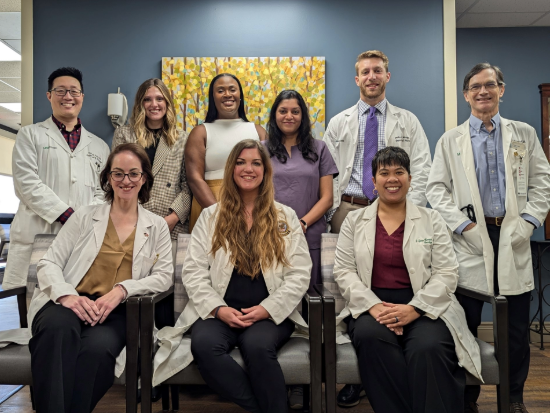 Front Row (left to right): Katie Fountain, PA-C, (HCoE team member); Emily Lane Schlitz Fortenberry, M.D., (HCoE Director); and Lynnie Harrison, PA-C, (HCoE Vice Director). Back row (left to right): Victor Sung, M.D., (Assistant Chief of Neurology, BVAMC); Morgan Rambo, Pharm.D., (HCoE team member); Nicole George, LICSW, (HCoE team member); Nidhi Kikkeri, M.D., (HCoE team member); Matthew McCay, M.D., (HCoE team member); Peter King, M.D., (Chief of Neurology, BVAMC).The Birmingham VA Headache Center of Excellence (HCoE) has recently been designated as a Hub, which is the highest level in the national HCoE program. The Birmingham program will receive an annual budget of $1.1 million to provide headache management to veterans in the Southeast. This will include an opportunity to participate in clinical trials for new headache treatments.
Front Row (left to right): Katie Fountain, PA-C, (HCoE team member); Emily Lane Schlitz Fortenberry, M.D., (HCoE Director); and Lynnie Harrison, PA-C, (HCoE Vice Director). Back row (left to right): Victor Sung, M.D., (Assistant Chief of Neurology, BVAMC); Morgan Rambo, Pharm.D., (HCoE team member); Nicole George, LICSW, (HCoE team member); Nidhi Kikkeri, M.D., (HCoE team member); Matthew McCay, M.D., (HCoE team member); Peter King, M.D., (Chief of Neurology, BVAMC).The Birmingham VA Headache Center of Excellence (HCoE) has recently been designated as a Hub, which is the highest level in the national HCoE program. The Birmingham program will receive an annual budget of $1.1 million to provide headache management to veterans in the Southeast. This will include an opportunity to participate in clinical trials for new headache treatments.
UAB Neurology providers recognized for exceptional patient care during FY24
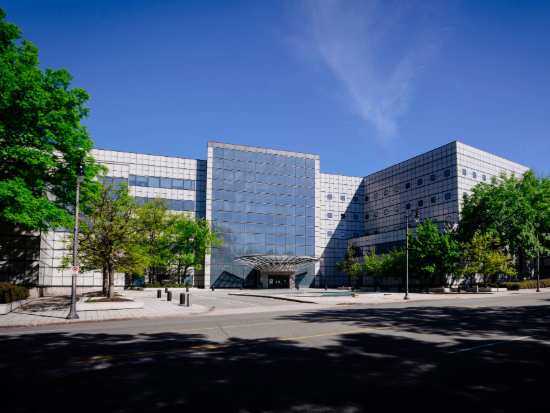 Forty-six providers in the Department of Neurology were recently recognized by the UAB Office of Patient Experience and Engagement for the exceptional care they delivered to patients during FY24. These providers achieved a 95 percent or higher top box rating (n ≥ 30) in care satisfaction based on patient feedback in Medallia.
Forty-six providers in the Department of Neurology were recently recognized by the UAB Office of Patient Experience and Engagement for the exceptional care they delivered to patients during FY24. These providers achieved a 95 percent or higher top box rating (n ≥ 30) in care satisfaction based on patient feedback in Medallia.
New faculty feature: Matthew McCay, M.D.
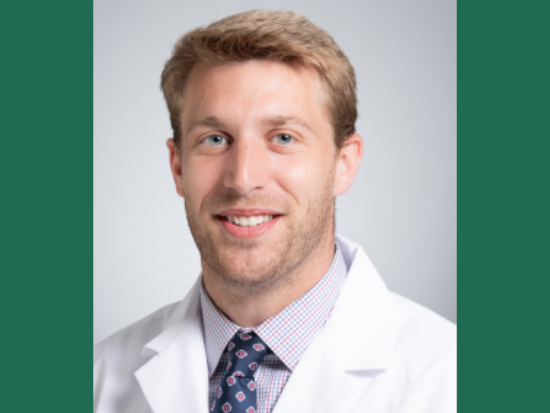 The UAB Department of Neurology welcomed Matthew McCay, M.D. to the faculty as an assistant professor in July 2024.
The UAB Department of Neurology welcomed Matthew McCay, M.D. to the faculty as an assistant professor in July 2024.
Bridging the gap from pediatric to adult epilepsy care: the Epilepsy Transition Clinic at UAB
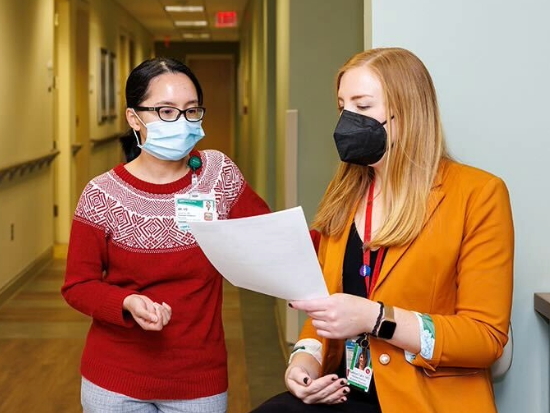 Image Source: Children's of AlabamaThe transition to adult health care is a critical time for young adults with chronic illnesses like epilepsy. This demographic often faces heightened risks, including increased emergency department visits, significant gaps in care, and higher mortality rates.
Image Source: Children's of AlabamaThe transition to adult health care is a critical time for young adults with chronic illnesses like epilepsy. This demographic often faces heightened risks, including increased emergency department visits, significant gaps in care, and higher mortality rates.
Resident spotlight: Sushmita Bhandari, M.D., PGY1
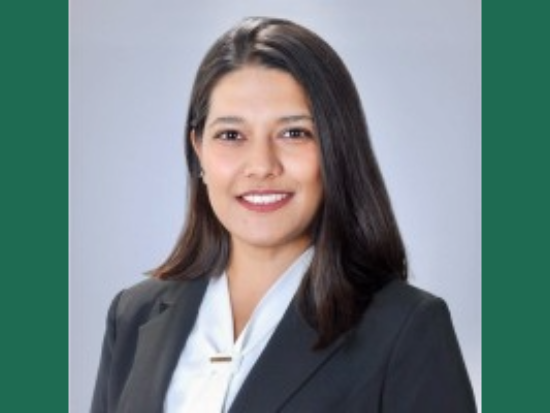 Sushmita Bhandari, M.D., PGY1, joined the UAB Department of Neurology in June 2024. A native of Nepal, Bhandari completed her undergraduate education in Nepal and pursued her medical degree at Fatima Jinnah Medical University in Lahore Pakistan.
Sushmita Bhandari, M.D., PGY1, joined the UAB Department of Neurology in June 2024. A native of Nepal, Bhandari completed her undergraduate education in Nepal and pursued her medical degree at Fatima Jinnah Medical University in Lahore Pakistan.
Davis, Jaunarajs, receive grants from Adair Family Junior Faculty Development Fund
Two faculty members in the Department of Neurology, Brittney Davis, PharmD., and Karen Jaunarajs, Ph. D., are recent recipients of grants from the Adair Family Junior Faculty Development Fund. This new grant, created specifically for Department of Neurology faculty, was established to support young faculty and their career development.
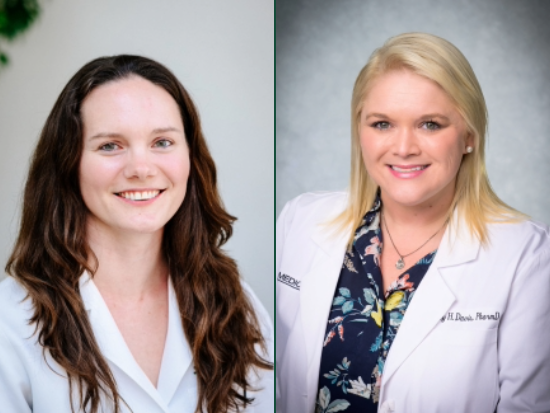 Read more
Read more
8 faculty in Department of Neurology receive promotions, tenure
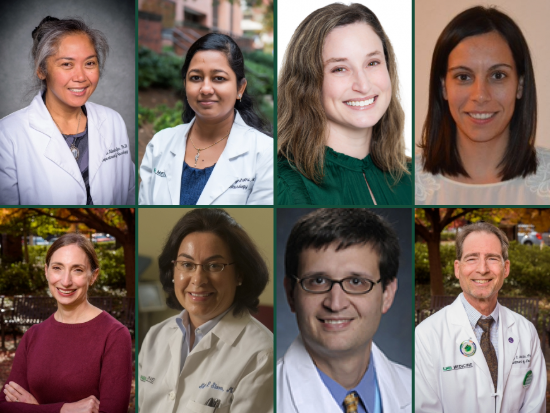 Eight faculty members in the UAB Department of Neurology have received promotions or tenure effective Oct. 1, 2024.
Eight faculty members in the UAB Department of Neurology have received promotions or tenure effective Oct. 1, 2024.